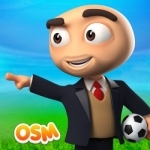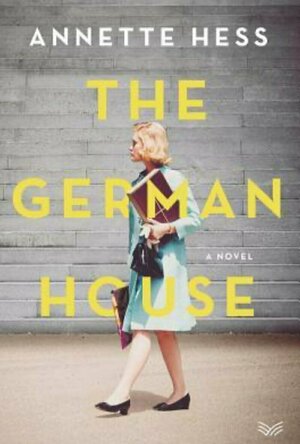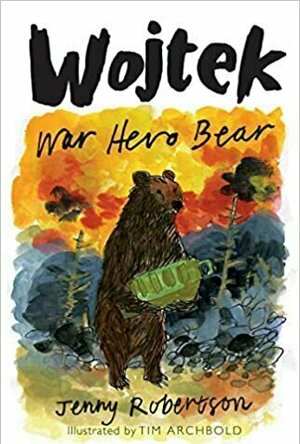
Box Island - Award Winning Coding Adventure
Education and Games
App
◆ Box Island - Award Winning Coding Adventure for Kids! Box Island is a mobile game that takes...

Online Soccer Manager (OSM)
Games and Sports
App
Do you want to be the manager of your favorite football team? Online Soccer Manager (OSM) offers you...

Istanbul: Digital Edition
Games
App
The official digital adaptation of one of the best board games in history – Istanbul. Istanbul...
BoardGames BoardGameApp GreatGames
ClareR (6037 KP) rated The German House in Books
Dec 30, 2019
I really enjoyed this novel. It was hard-going at times, and it did read like a translated novel. It did however, catch the spirit of the time. Eva’s longing to break out of the societal restrictions of the time (for example when she refers to how much she likes a new Beatles song that Jürgen can’t understand, he doesn’t like pop music) and Jürgen’s wish that she stops work as soon as she gets engaged (as a modern woman, I was positively fuming at this point!!).
I was fascinated by the trip the Court makes to Auschwitz - somewhere I’ve never been, and after a trip to Oranienburg (a camp for political prisoners outside Berlin), I feel that I would struggle to go. This was one of the most emotional parts of the book.
The side story involving Eva’s older sister is also fascinating, and I feel portrays the effect of seeing so much violence and hatred as a young child (no spoilers here!).
All in all, after I got used to the writing style, I really enjoyed this. It was an interesting insight into the post-war years, and West Germany’s reaction to the damage and destruction that the Nazis had caused during the Holocaust.
This is well worth a read.
Many thanks to NetGalley and the publisher for my copy of this book to read and honestly review.

Real-time Currencies Pro
Travel, Finance and Stickers
App
Real-time currency exchange rates is only one tap away with this App. Features ‣ A single tap on a...

Hannah's Summer Crush
Games and Education
App
OMG, Jack asked Hannah on a new date! Help her get ready for a beach date with her high school crush...

Beyond Ynth
Games and Entertainment
App
7th IMGA "GRAND PRIX" WINNER! also available for iPad and Mac OSX Embark on an epic adventure that...
BookInspector (124 KP) rated Wojtek: War Hero Bear in Books
Sep 24, 2020
Well, I think this book is classified as a children’s read, but I noticed, that you should have pretty good knowledge in history, in order to understand what is going on in here. I picked up this book after reading a Holocaust memoir, so it was a very nice continuation to my reading theme. 😀
When Piotr, a polish soldier, discovers an abandoned bear cub, he decides to take him along on his journey to Palestine. But he discovers, that after losing his family to the Soviet regimen, Piotr feels very lonely, and Wojtek’s presence comforts not only him but other soldiers as well. I really liked the characters in this book, I found them charming, warm and pleasant personalities. I really enjoyed that author used multiple perspectives in this novel, I really loved reading Wojtek’s parts, I found them cute and funny. I loved the parts, were author shared Piotr’s story with the readers. It is a very sad story involving concentration camps and betrayal, but these parts made the whole book more complex and more interesting for me. (as an adult with some knowledge of history…)
The narrative follows the army squad accompanied by Wojtek, through their journeys in the middle east, and is very fun to read. I have to agree, Wojtek is a very funny and smart bear, and I loved all his mishaps. The author has done a great research for this novel, however, sometimes it felt like reading a history book, filled with war terminology and facts. Another aspect I really enjoyed was the pictures, Tim Archbold did a great job on them. I am glad that every chapter had a picture, and I was curious to find out, which scene from that chapter he decided to illustrate. 🙂
The writing style of this book was pretty straightforward, and it was quite easy and enjoyable for me. The chapters were a decent length and the pictures helped to make it more entertaining and playful. I did enjoy the setting of this book, it changes continuously, bringing in different scenery and atmosphere. I think that the ending was very realistic and believable for this novel, but some aspects left me a little bit upset with Piotr. So, to conclude, It is a great read for children as well as adults, especially if your child is learning about WWII, I think it would widen up their knowledge and you would have great fun reading it as well. Win-win situation. 😀 This novel has amusing characters as well as lots of serious and fun moments, and I do recommend to give this book a try. Enjoy 🙂

Speak & Translate - Translator
Productivity and Reference
App
Speak & Translate is an indispensable voice and text translator that allows you to communicate...

Typorama: Text on Photo Editor
Photo & Video and Business
App
Looking for an easy way to create attractive visuals? Typorama lets you create amazing visuals by...

